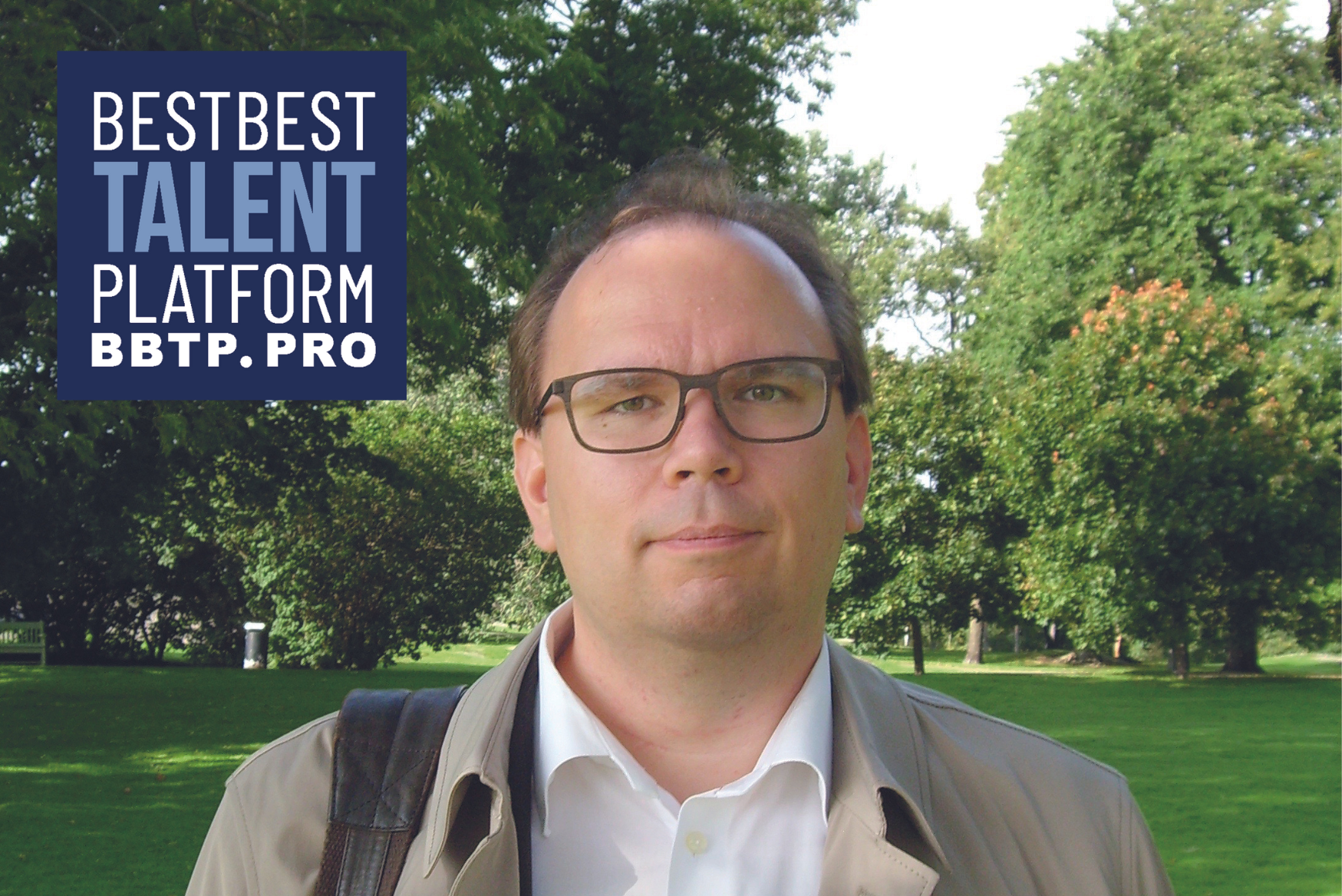The role of coaching in the future of work
In September, BBTP Members gathered for a thought-provoking presentation by Jussi Tolvanen, MBA and Certified Business Coach® (CBC®, ACC, EIA). Jussi’s presentation focused on a timely topic: “The Future of Work” and how organizations and individuals can use coaching to thrive amidst changes in the working world.
Jussi— with over two decades of experience as a business specialist, manager, and director— has been coaching since 2019. His passion for improving productivity and well-being in the workplace shone through in his discussion, which covered several key challenges and opportunities businesses face today.
If you could not attend the event, below is a summary of Jussi’s insightful presentation. We hope to see you at an upcoming BBTP Member Meeting.
Future of work

Modern working life is being driven by technological advancements, a diversifying workforce, and global shifts. Jussi kicked-off his presentation by highlighting some current transformations in the workplace, including debates around remote work, the increased utilization of AI, and rising cases of burnout.
With the ever-shifting work demands, companies must not only rethink where and how work is done, but whose terms dictate the work environment. Coaching is a tool for business professionals to adapt to new challenges in working life and develop their own capabilities to lead thriving organizations.
Coaching as a business tool

A central theme of Jussi's presentation was the importance of coaching as a tool for navigating new challenges in the working world. He outlined coaching’s ability to provide structure, develop capabilities, and offer clarity for both personal and professional growth. Jussi described coaching as an enabler. It activates thinking, leads to concrete actions, and supports individuals and organizations in reaching their goals.
Coaching, he explained, works across four dimensions:
-
- Purpose: Defining decision-making processes, setting goals, and measuring progress.
- Action: Focusing on planning, executing, and managing risks.
- Emotion: Helping individuals handle stress, navigate challenging situations, and overcome negative feelings such as impostor syndrome.
- Balance: Improving time management, prioritization, and delegation to create a more productive and balanced work environment.
- Purpose: Defining decision-making processes, setting goals, and measuring progress.
Through these dimensions, coaching not only helps navigate business complexities, but fosters deeper connections— to ourselves, to our work, and to each other— enabling more cohesive, resilient teams.
The steps to creating thriving organizations

An important highlight of Jussi’s presentation was the Organizational Framework that he shared, which outlines key resources and demands in the workplace. The framework emphasizes the balance required between positive demands— such as decision-making and continuous learning— and challenges like work overload and bureaucratic obstacles.
The framework is built on core concepts like servant leadership, social capital, and fairness, all of which are essential for creating a supportive and effective organizational culture. According to Jussi, organizations must reduce role conflicts and excessive bureaucracy, while promoting decision-making autonomy and learning opportunities. Striking this balance ensures long-term well-being and productivity within teams.
The framework also addresses the importance of:
-
- Removing obstacles that prevent progress, such as unclear roles or excessive formalities.
- Balancing demands to avoid burnout while maintaining engagement.
- Supporting social structures within the organization to foster collaboration and fairness.
- Removing obstacles that prevent progress, such as unclear roles or excessive formalities.
This framework provides a strategic approach to improving both individual and organizational performance, aligning with Jussi’s coaching philosophy of focusing on holistic growth.
Overcoming obstacles and restoring connection
One takeaway for BBTP Members was the importance of proactive decision-making. Jussi encouraged individuals and organizations to identify when they need additional support and seek coaching when necessary.
As the workforce continues to evolve, Jussi emphasized that flexibility and adaptability are critical to staying ahead. By investing in coaching, organizations can foster a culture of continuous improvement, enabling both employees and teams to manage the challenges of working life.
Beyond strategies and tools, Jussi’s presentation served as a reminder of a broader mission: restoring connection. In a world of increasing separation—whether due to remote work, hierarchical structures, or technological disruption—the key to thriving organizations may lie in our ability to reconnect and collaborate effectively.
BBTP extends a warm thank you to Jussi Tolvanen for his insightful presentation on the future of work and coaching's pivotal role in addressing today’s workplace challenges.
Missed the meeting? Reach out to Jussi for more insights into his presentation or to learn how coaching can support your organization’s growth.
Jussi Tolvanen
Certified Business Coach® (CBC®, ACC, EIA)

Are you a C-level expert in search of community?
By becoming a member of BBTP, you gain access to open assignments, member benefits, and community events, including our Monthly Member Meetings. Registration for BBTP Membership only takes 2 minutes or less.
If you found something about this blog post interesting, feel free to give your thoughts in the comment section below. We always love to hear from our readers.





